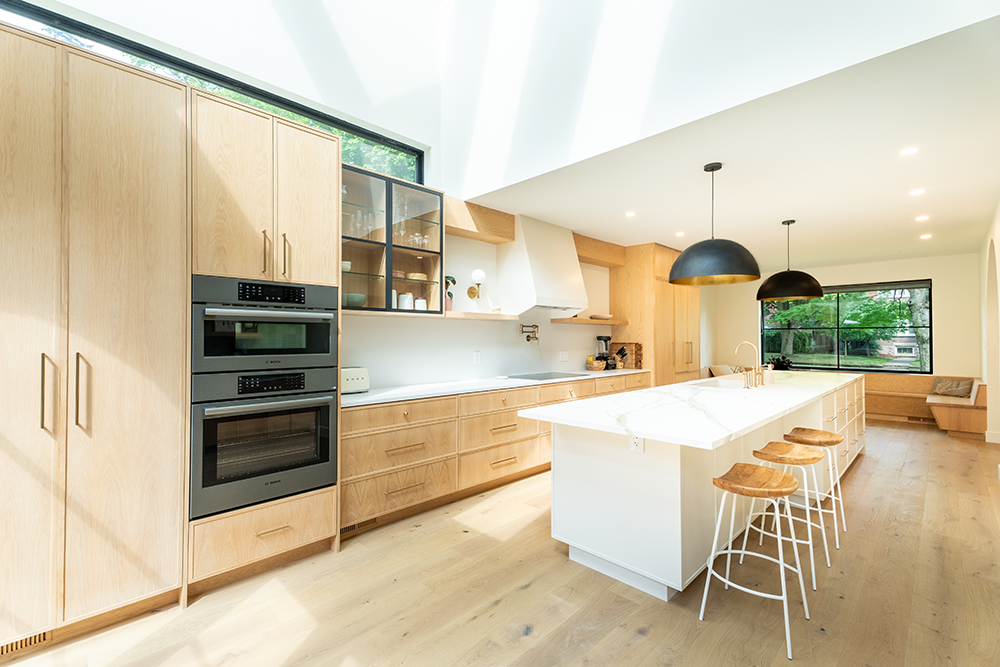Construction is about managing and mitigating risk, whether it’s safety or budget; minimizing and mitigating risk is why we plan and organize as much as we do. When deciding on which type of agreement to pursue for your project you need to ask yourself some key questions, am I comfortable bearing the risk of potentially increasing input costs between signing the contract and completion of the project and in return, getting the best possible pricing for my project? Or am I not comfortable taking that on, and therefore ok with paying a little bit more to be able to have a reasonable level of certainty of overall cost from the beginning?
There are three contract options to consider for your project and in this blog, we’re hoping to help you determine which is best for you.
Quote
Pros
Certainty of a fixed price for a defined scope that’s established before developing the contract.
Cons
A higher margin for the builder is required to offset the possibility of increased input costs during the project, meaning if the project goes well for the builder, the homeowner will pay more than they otherwise would.
Thoughts
By choosing a quoted contract for your project you lock in a price for a set scope of work, for which the builder supplies all labour and materials. Because the risk of increases in input costs from the time of signing the contract to the time the project is completed, is eliminated for the homeowner, the builder needs to build in a larger margin to hedge those risks. This means that if things go well, the builder will make more profit and the homeowner will pay a higher price than they otherwise would have. However, if input costs rise, the homeowner is insulated from those increases.
Because the builder supplies all materials and labour in a quoted contract there is very little required transparency in the relationship, it’s as simple as payments being dispersed at pre-agreed stages of completion. This may be a benefit to some who don’t want to have to review invoice packages on a regular basis and just cruise through with piece of mind.
To avoid change orders, which will not require transparency, the homeowner needs to provide the builder with as much information and detail as possible before the quoting process starts. This means a complete scope of all selections, millwork, etc. The more information provided, the more accurate the quote and the less chance of a change order during the construction process.
A quoted contract can also be set up with allowances for finishes based on per square foot or per piece costs to allow for decisions to be made during the process.

Project Management
Pros
The homeowner benefits from the builder’s network of suppliers and trades to get the best price possible for the inputs into their project. The homeowner only pays the true cost of the project plus a management fee.
Complete transparency and a fully aligned approach.
Cons
Risk of input costs increasing between signing the contract and completion of the project.
Thoughts
A project management contract is the most transparent option available for your project. The homeowner benefits from a lower fee from the builder as well as access to the builder’s pricing for suppliers and subtrades. The client also gets a completely transparent view into their project, all receipts and invoices are submitted for review and peace of mind.
When engaging in a project management contract with a predetermined fee, both parties are moving together toward a goal with total transparency and as a team. A project management approach fosters idea sharing, value engineering, collaboration, and creativity. Along the way there may be better ways of completing different aspects and if there’s freedom to collaborate, versus complete adherence to a scope in order to reduce change orders, there’s more possibility for efficiency and the best possible outcome.
A project management contract also allows for more time as the project unfolds to make final decisions.
If a project management contract is right for your project, you can help minimize costs and overruns by being as upfront and transparent as possible from the start. The more information and selections that can be provided early, the better. This allows for the highest level of detail and exacting budgeting that can bring you close as close as possible to a quote at the lowest possible management fee.

Hybrid
Pros
Locked in pricing for key aspects of the project while still allowing for a more dynamic approach to the finishing.
Cons
A higher margin for the builder on quoted aspects of the project.
Thoughts
Not everyone can have all the information and selections completed upfront for their project, especially a custom home. If you’re realistic with yourself and you know that’s not possible, a hybrid model may be right for you.
In a hybrid model the builder can quote the known aspects of the project, for example, excavation, framing, insulation, drywall, exterior finishes, etc. and operate on a project management basis for the finishes on the interior. This allows a level of comfort and certainty for the items that are quoted and a known basis to work from when making selections as the project develops.
As with a complete quote, the margin for the quoted portion of a hybrid contract will be higher than pursuing a project management option, but the safety assured may be worth it, while still benefiting from a project management style for the remainder.

Which is best?
At the end of the day, there isn’t a right answer that applies to every project, just as every home is unique, the approach required is the same, unique. We’re happy to talk through your renovation or new build project and tailor an individual approach that makes sense for you.

